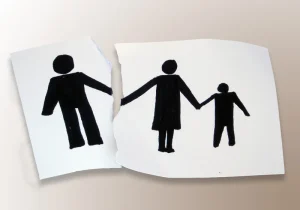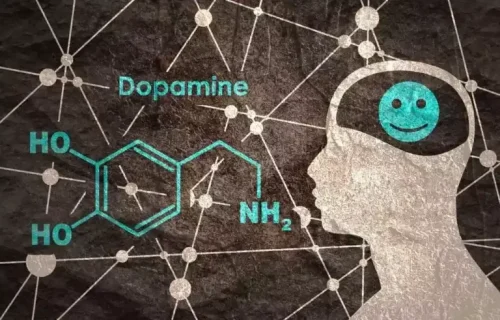
In fact, they were often overlooked as unproven methods of treating emotional distress in the past. However now we know that they play a valuable role in creating emotional balance. It is worth noting that while CBT can be effective for many individuals struggling with addiction-related shame or guilt, it is not a one-size-fits-all approach.
How to Deal with Guilt and Shame in Recovery
This makes you more likely to repeat bad behavior and more likely to harm yourself. When we ignore our feelings of guilt and continue to do whatwe believe is wrong, we feel shame. Shame is when we internalize guilt andbegin to believe we are a bad person because we did https://ecosoberhouse.com/article/ something wrong and ignoredour feelings of guilt.
Dialectical Behavioral Therapy (DBT) for Shame and Guilt

The authors should comment on the statistical adequacy of the sample size in this context. PLOS ONE does not copyedit accepted manuscripts, so the language in submitted articles must be clear, correct, and unambiguous. Any typographical or grammatical errors should be corrected at revision, so please note any specific errors here. 3Response scale ranging from 1 to 5 with higher average scores reflecting greater shame/guilt.
- It can, however, feel very uncomfortable if family members have developed the habit of shielding their loved ones from reality.
- Get you or your loved one help for addiction or mental health issues today.
- It relates to the individual’s sense of self and identity, rather than specific actions.
- His recent books include How to Improve your Marriage without Talking about It and Love Without Hurt.
FAQs about How to Address Shame And Guilt During Addiction Recovery
- Shame can become toxic to your recovery efforts, even set you up for a relapse.
- The revised stress and coping theory indicates that positive and negative emotions may work together to influence individuals’ behavior 32, 33.
- The evolutionary function of guilt has nothing to do with moral judgments of right or wrong.
Examine where your values came from (parents, other relatives, friends or society) and whichones you want to keep or discard. I think backthrough the many years of my life and recall a time when I stole something froma store. Imagine the item stolen was not a necessity but a luxury item like cigarettes. Embrace the concept of learning from mistakes and using them as opportunities for growth. Channel your energy into positive activities that promote personal growth and well-being. Acknowledge the impact of your actions and work toward personal growth and accountability.
Overcoming Shame and Guilt in Recovery and Strategies for Self-Forgiveness and Healing
The first model (A) represents the initial models tested and the second model (B) represents the models with all the potential paths added for the examination of positive emotion as a moderator. Moderation was explored for any significant diagonal path in the first model (A). The main effects of positive emotion were first examined (including for the intercept to explore cross-sectional association) and then interaction terms entered (with main effect on intercept omitted).

How to Break the Cycle of Shame and Guilt
We offer a wide range of treatment options designed to fit your unique needs, giving you the support and guidance needed to overcome addiction and reclaim your life. If you’re struggling with addiction and shame, please call us at to find out about your rehab options, and learn more about how our addiction treatment centers can support you in your recovery. Clarify so that readers aren’t forced to go to the study cited to understand this point. It requires a collective effort from society, as well as individuals in recovery, to challenge these harmful beliefs and create a culture of compassion and understanding. The stigma not only affects those who are actively using but also follows individuals into recovery, making it difficult to reintegrate into society, maintain employment, or reconnect with family and friends. guilt and shame in recovery When people feel judged, their self-esteem can plummet, deterring them from accessing critical resources or sharing their journey with others.

You feel compelled to meet your addiction’s needs no matter what thecost. To the addicted person, meeting that need is more important than eating,sleeping or any other basic need. Reflect on how past experiences can inform your recovery journey and empower you to make healthier choices. Guilt is often related to specific actions or behaviors that a person considers to be wrong or harmful. They may feel remorse for the pain and suffering they caused their family and friends, leading to a deep sense of guilt and shame. Even without an addiction, people who seek out treatment for mental illnesses such as depression are often portrayed in popular media as weak or dangerous to themselves and others.
- It acknowledges that everyone makes mistakes and experiences difficulties in life.
- As difficult as it may be to cultivate compassion as a remedy for shame, it is a task that must be met.
- Unlike some other therapies, which may focus more on uncovering the roots of these emotions, ACT is based on the principle that we cannot always control our thoughts and feelings, but we can control how we respond to them.
- It provides a safe space for individuals to talk about their experiences openly and get guidance on how to navigate the complex emotions and challenges that come with addiction recovery.
The Healing Power of Guilt

This sense of belongingness makes it easier for individuals to come out of their shells and break out of the cycle of self-blame and guilt that often accompanies addiction. It’s important to note that while shame can be damaging, it also has an evolutionary purpose. Feeling ashamed of immoral or unethical behavior helps us conform to social norms and maintain social order. However, this evolutionary mechanism can become problematic when it leads individuals to feel ashamed for seeking help or vulnerability. Using dialectical behavioral therapy to treat addiction is very popular and successful. Learn about acceptance-based and change-focused skills in recovery.
It may thwart the motivation or progress being made during recovery as you will continue to feel like a “bad person” who needs to escape or deserves to be hidden away. But once you can free yourself from those feelings, you can get back on track to the good life that recovery brings. There are ways to unlock the struggle door, opening a way to remove shame and get back towards your freedom from addiction or substance abuse. If you or someone you care about is dealing with addiction and the feelings of guilt and shame that come with it, contact Infinite Recovery today.
